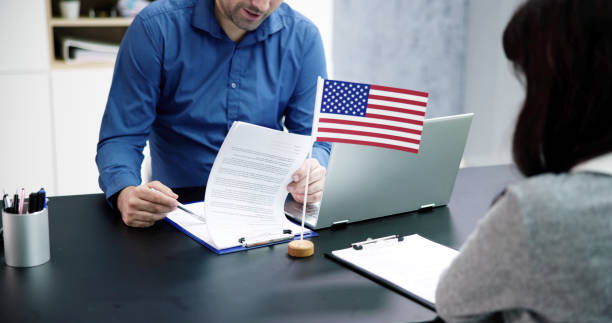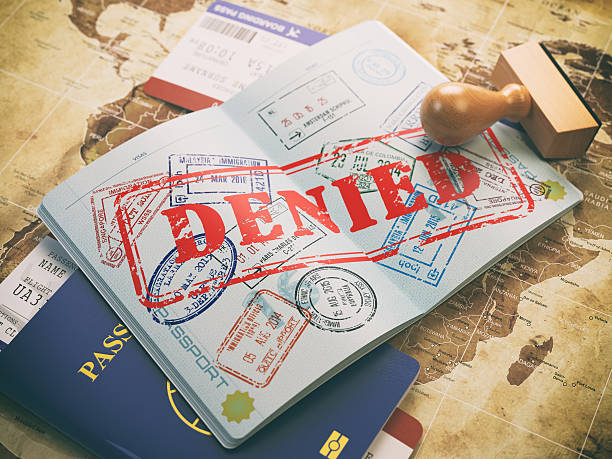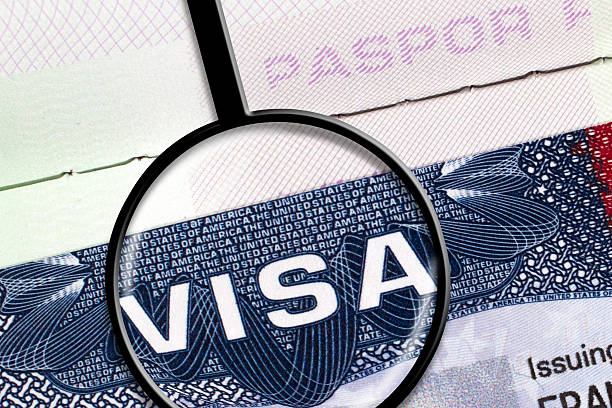US Tourist Visa: New rules for Colombians and key tips for passing the interview without errors

The U.S. Department of State recently announced that, beginning September 2, 2025, it will implement an update to the categories of applicants who may qualify for an interview waiver when applying for nonimmigrant visas.

It's important for people to respond confidently. Photo: iStock
Under the new regulations, all nonimmigrant visa applicants, including those under 14 and those over 79, will be required to attend an in-person interview with a consular officer, except in the following situations:
- Applicants classified under visa categories A-1, A-2, C-3 (except attendants, servants, or personal employees of accredited officials), G-1, G-2, G-3, G-4, NATO-1 through NATO-6, or TECRO E-1.
- Applicants for diplomatic or official visas.
- Applicants who are renewing a full-validity B-1, B-2, or B1/B2 visa, or a Border Crossing Card/Foil (for Mexican citizens), within 12 months of the expiration date of the previous visa, and who were at least 18 years of age at the time the previous visa was issued.

All applicants must pay $185 for the interview. Photo: iStock
The consular interview can be complex for many people, especially considering the possibility of a denial. This not only means missing out on the opportunity to explore a new country, but also represents a significant economic impact. All applicants must pay $185 for the interview, in addition to a new $250 Visa Integrity Fee, which will be applied starting October 1. In total, the process will cost $435, equivalent to more than 1,700,000 Colombian pesos.
Claudia Matheus, an immigration lawyer and general manager of Visas Gómez & Asociados, explains that the consulate's behavior currently varies: some weeks remain stable, but others see a higher number of denials.
"We shouldn't demonize what's happening. They're reviewing social media and other information that wasn't previously considered. This type of situation creates anxiety, but this document can be requested. It's key for people to prepare carefully, as a single mistake can lead to denial," he warns.
Matheus emphasizes that one of the most common mistakes B1/B2 visa applicants (tourism and business) make is not adequately preparing for the consular interview.
"Interviews represent approximately 70 percent of the final result. Many applicants give more importance to completing the DS-160 form , when it only accounts for 20 percent. The remaining 10 percent is at the discretion of the consul," he explains.
Regarding the required documents, the lawyer reminds us that, although Colombia is a country exempt from presenting physical documentation to the consular officer, it's crucial not to be overconfident. I recommend bringing documents that prove four types of ties: professional, employment, property, and family.
Suggested documents include: a copy of a professional card or graduation certificate, employment certifications or letters of recommendation from previous employers, and, if you own property or businesses, certificates from the Chamber of Commerce or freedom and tradition.
"Not all consuls will request these documents, but it doesn't hurt to bring an organized folder with them. The Embassy has recently doubled its consular staff, and many of these new officials may be in the habit of asking for physical documentation. This is where many Colombians are getting caught short during the interview," Matheus asserts.
Body language and the way you respond are also crucial. As the expert mentioned, ten percent of the outcome of the request depends on the consul's judgment, so avoiding eye contact, omitting information, or responding evasively can be interpreted as lying or fraudulent , negatively impacting the process.

Body language and the way you respond are also crucial. Photo: iStock
Immigration history is also a determining factor. If the applicant has never left the country, this could be interpreted as a lack of purchasing power for vacations or a lack of travel culture.
“When a person shows up at the embassy with a stamped passport, ideally from Europe, Asia, or Latin American countries, the consul may think they have already traveled and returned, which reduces suspicions that they plan to stay in the United States. This reduces the possibility of being viewed as a potential migrant .”
What if you've already been denied a visa and want to reapply? There are two possible reasons for denial: the first is because one of the four legal roots or immigration history needs to be strengthened. The other reason is because there is some reason for immigration ineligibility.
"The latter refers to a legal issue. In these cases, it's necessary to review the applicant's file, background, and history. It's like taking an immigration x-ray of the person. If a problem is detected, it can be addressed through legal channels," he explains.
Finally, regarding whether or not the interview should be conducted in English, Matheus clarifies that most consular officers understand Spanish. However, in some cases, interpreters are available for those who are not fluent in the language, which could affect the interview outcome if the translation is inaccurate. Therefore, he suggests that if the applicant is fluent in English, they should conduct the interview in that language ; if not, they should be very clear with the interpreter that they want a faithful and accurate translation of their answers.
ANGIE RODRÍGUEZ - TRAVEL EDITORIAL - @ANGS0614
eltiempo





